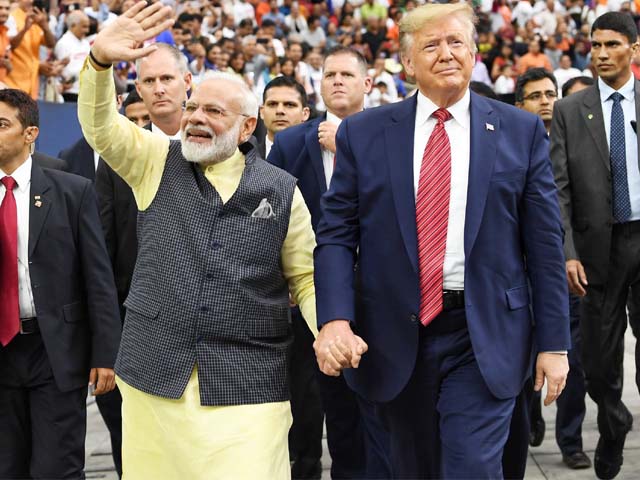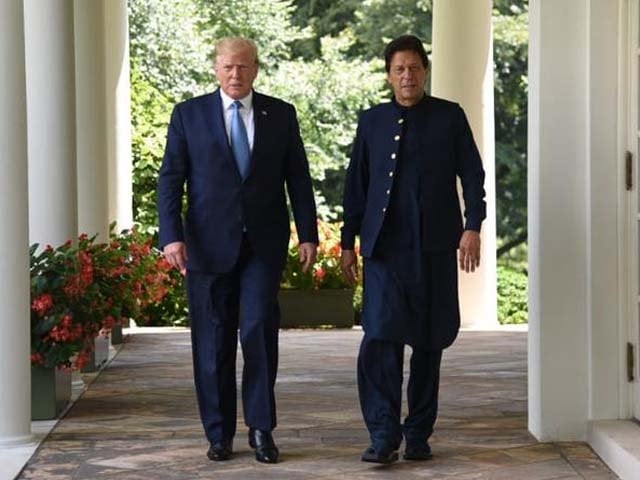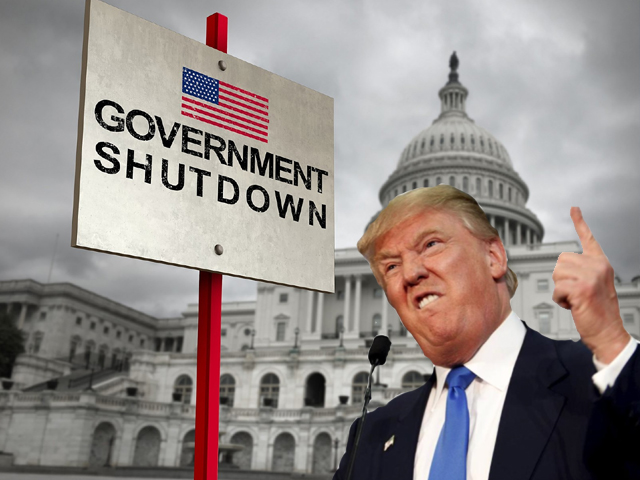
Ashraf Ghani – Bringing maturity back to international politics
Afghans and Pakistanis have acted like kids for too long - running to their father in the US to lodge their complaints
Although no one will claim honestly, the new Afghan President, Ashraf Ghani, for the most part, is a well-respected statesman amongst the Washington circles.
Politicians are trained liars and Ghani’s predecessor was no exception to the rule. However, this guy is someone who comes across as less slippery, more adaptable to change and hence generally acceptable for his demeanours and policies.
Earlier this week, Ghani was on his first official US visit as Afghanistan’s head of state. He is no alien to either US culture or politics. He studied, worked and played a prominent part in influencing Washington’s pre and post 9/11 Afghan policies.
I remember interviewing him in the spring of 2001, when he was working as an anthropologist at the World Bank, as well as someone actively involved in strategically moulding and steering public opinion at a time when the Taliban were wielding overwhelming authority in his country of origin. I found him to be an astute observer of politics, a pragmatic and progressive thinker who, at that time, advocated the ‘reconstruction of Afghanistan by the Afghans’.
But those were different times. As the world around us changed beyond September 2001, Afghanistan became the focal point of US policy. While Ghani has enjoyed stellar credibility, his ascension to the presidential office was nothing less than a soap opera and by no means an easy ride to the top. In the typical chaos that characterises Afghan politics, Ghani had to fight a long and hard battle, and eventually ended up sharing power with another presidential contender, Abdullah Abdullah, after Hamid Karzai’s exit.
Fast forward to now, Ghani’s Washington visit was a delectable success. Although he was accompanied by his ‘other’ half, Mr Abdullah, the two did put up an impressive performance and showed a sense of purpose and poise to engage the US in a constructive and amenable manner.
Unlike many past visits by Afghan presidents, this one was positively different; it left an indelible mark and achieved tremendous image building mileage. Ghani was also helped out by his ‘better’ half who actively participated in media appearances and think tank meetings apart from meeting the First Lady, Michelle Obama.
Ghani’s speeches were quite heart rendering. He charmed the audience on more than one occasion. He personalised his statements and made real life remarks such as the one he had with the daughter of a US reservist. Ghani expressed appreciation for the US helping out to make things better for the Afghans. His mentioning the interaction with a widow of a US serviceman and thanking her was a grand gesture that folks here will remember for a long time to come. What really hit my emotional strings was what he said in his speech in the Congress,
“In Afghanistan, there is a saying that no gift can go unreciprocated.”
I found myself drowned in the depth of the comment and immediately became an Ashraf Ghani fan.
The fluentness and the lucidity of Ghani’s thought process helped strike a happy cord and created a solid rapport with President Obama. His reconcilable and diplomatic overtures stood out and were duly noted. Ghani showed the magnanimity of an educated leader with an international background, one who is well-aware of the intricacies of politics, policies and tackling the powers that influence his country. His methodology of opening up a dialogue based on the commonality of interests, of sharing a vision of realigning US-Afghan relations in a changing world, were the highlights of the political side of Ghani’s visit.
On a side note, I could not resist myself from the temptation of wishing for such a pleasant change of leadership in Israel as well. Had Benjamin Netanyahu exited the scene in the recently held elections, President Obama would have heaved a sigh of relief and perhaps gotten an opportunity to work with someone new; one with fresh ideas and not Netanyahu, the tantrum thrower, the attention seeker and a hard-headed nut who got re-elected only because of some last-minute haggling and political crookedness.
Although it is understandable that Ghani’s prime objective of the visit was to ensure continued US support, both moral and material, he was able to get assurance from President Obama to slow down and delay the troop withdrawal from Afghanistan until ‘at least the end of the year’. This announcement did not really come as a surprise since there has been mentionable resistance and pushback to Obama’s initial plan of withdrawal this summer. Knowledgeable Afghan watchers and experts, who have a clout in Washington’s policymaking circles, say that Obama may be compelled to even review his latest and revised troop withdrawal timeframe.
With the snow melting in the mountains, the radical Islamist forces will push themselves in motion, press the ‘activate button’, crisscross through the Torkham Range and wreak havoc both in Pakistan and Afghanistan. With the Islamic State of Iraq and Syria (ISIS) looking to forge alliances in the region and trying to go global, it made better sense for the Americans to stay on. Afghan elite forces are good, but they still need some additional training and better focus. Moreover, the drone surveillance missions that are sent to Pakistan are made possible by virtue of US bases in Afghanistan. Therefore, a lot is going on and US cannot really just wrap up proceedings and leave.
Many in Washington do, of course, question the rationale of this hand-holding policy. Sceptics want to bring closure to what is often termed as ‘big brother is watching over you’ approach to ‘a first-class economic relationship’ with Kabul. Such a high point, if it ever happens, is something that will perhaps take decades to come to reality.
For now, it will be nothing less than a miracle if the Afghans are able to independently run their own day-to-day short as well as long term governmental affairs. Understood that Ghani and Abdullah decided to share power, the fact that they have yet to come up with a proper, formidable cabinet arrangement speaks volumes of the disunity and discord found in the power mechanics.
Apart from all the clutter and disarray in the Afghan system, I heard a lot of human rights related concerns being aired by those who are critical of the US generosity toward Afghanistan. Prior to the leadership meetings, human right groups and activists urged both nations to pay heed to issues that made better sense for the people of the two nations rather than helping arms sellers make big bucks though the business of warfare.
Human Rights Watch (HRW) did not hold back in stating the truth and was courageous enough to issue a statement that was indicative of the sentiments of tons of peace loving folks around the globe. The wording of the statement could not have been more appropriate and well-timed.
“Both the US and Afghan governments have a legacy of human rights violations to address, from abusive militias in Afghanistan to the mistreatment of detainees at Bagram and Guantanamo.”
Of course, we cannot forget the most recent incident of brutality in which a girl was hacked and butchered to death by idiotically mad crowds. Just like the demons of ignorance and darkness rule the roost in Pakistan, Afghanistan is faced with the same backwardness and uncivilised behaviour of its citizens. It is paralysed by similar type of issues that hamper Pakistan’s growth; lack of education, good governance and respect for humanity.
While we can all scratch our heads, ponder and reflect on such events, it is in hands of leaders like Ghani to correct the historical wrongs and help populations grow out of primitive psyches that blanket their parochial minds.
Relations with Pakistan were apparently not brought up much during Ghani’s visit, at least, not as far as my moles sitting in the White House or the Department of State are concerned. And that is a good thing. The Afghans and Pakistanis have acted like little kids for far too long and go running to their mother (or father) in the White House to lodge their complaints and seek corrective action.
If Ghani did not bring up Pakistan’s shenanigans, it means the Afghans want to go one-on-one with Islamabad and sort out whatever mess keeps going on. Afghan relations with Pakistan are an up and down phenomenon. There are times when they come to a point when observers sit back and start believing that things are starting to improve when instead, it all starts going south, yet again. Conflict resolution is a must that needs to be handled maturely by Kabul and Islamabad.
In a word, Ghani’s trip was not a bloated or pressured affair. The Afghan president did not just come here holding a begging bowl in his hand. In fact, he proudly presented his country’s case and won quite a few friends in the process. I must say that the Pakistani leadership can learn a lesson or two from Ghani’s trip, especially Mr Nawaz Sharif who acts rather immaturely whenever he is in town and likes to point his fingers at either the Indians or the Afghans, accusing them of meddling in his country’s affairs. Mr Sharif is a big boy and, as such, must take leadership and work for achieving and restoring order in the region with his own efforts in a fair and square manner.
While all and sundry are of the opinion that granted the process of Afghanistan’s reconstruction is an inevitable necessity, it was imperative for the unity and integration of Afghanistan to purely involve the Afghans in the process of rehabilitation.
Yes, times have changed but self-sufficiency, independence, and Afghans resolving Afghan problems ties in directly with Ghani’s ‘reconstruction of Afghanistan by the Afghans’ philosophy. The US cannot be expected to simply sit there and babysit the Afghans. The sooner the Afghans settle matters, the better it is. Let’s not forget that in this dynamic game of power politics, it’s all about mutual interests. It is not a case of one-way traffic.
Keep in mind that the US is a country, not a non-profit or a charity organisation. It has its own critical domestic and foreign interests that it needs to safeguard. Afghanistan, or as for that matter, any other country in the world must not think in terms of continuous help forever.
Case in hand is the voice being heard now that is questioning the unconditional assistance US provides to Israel, one of our key allies in the Middle East. Nothing is perpetual. Most of all, money is scarce and US taxpayers feel the pinch when millions of dollars are transported to foreign countries; whereas our own people suffer from unemployment, homelessness, lack of social services and standard of lifestyle taking a hit left, right and centre.
It is true that Afghanistan represents a sad spectacle of fury and disorganisation. The US extension of the troop withdrawal timeframe may help for now but eventually, Afghans will need to take care of their own backyard.
With leaders like Ghani at the helm, one is confident that things will work out for the best. If nothing else, the talk of reboot, reconstruction, reform and good governance will spark off a debate and a process that may prove to be a wakeup call for the Afghans, something that has never happened in the past.




COMMENTS (3)
Comments are moderated and generally will be posted if they are on-topic and not abusive.
For more information, please see our Comments FAQ